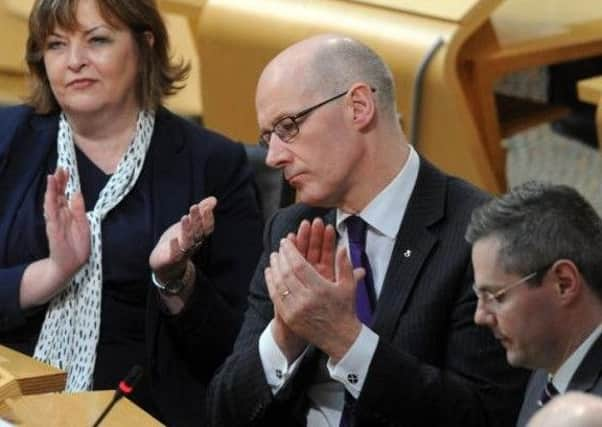Leader comment: Education reforms a step in right direction


That varied response, plus the fact that political criticism was relatively tame compared to the usual savaging of the Scottish Government’s record on education, suggests that Mr Swinney has taken a step in the right direction.
Significant change always had to come, because tinkering around the edges would make little difference to the current state of affairs. The intended improvement in standards to be facilitated by the Curriculum for Excellence has not materialised, and Mr Swinney had already indicated that changes would be made, not least in making the strategy appear less complex. The issue of transferring more power to headteachers was also raised previously, sparking concerns from headteachers that they would turn into business managers. But the Education Secretary eased those fears by announcing yesterday that schools would still have administrative support from local authorities.
Advertisement
Hide AdAdvertisement
Hide AdAnd Mr Swinney is certainly talking a good game when he says that “we will free teachers to teach”. He will not get many in the profession taking him to task over that objective, provided he can deliver on it.
Yet there are two nagging doubts about what has been proposed. The first is over teacher numbers, raised again by Labour’s Iain Gray yesterday. Without adequate numbers and support in place, teachers will continue to struggle to plug gaps.
The other concern is that by handing power to headteachers, the Scottish Government is handing over responsibility for closing the attainment gap. There should be no turning around later on to say that the attainment gap has failed because headteachers have failed. Overall responsibility remains with the Scottish Government.
Mr Swinney’s reforms merit a cautious welcome, but whether the new strategy is the answer to Scottish education’s problems is another matter; only time will tell, and it is a long way back after several years of declining standards.